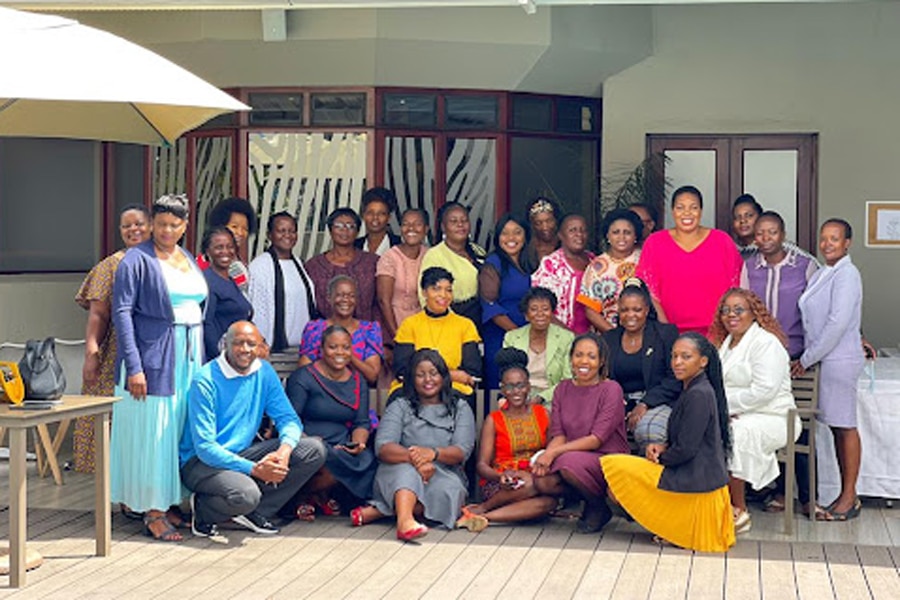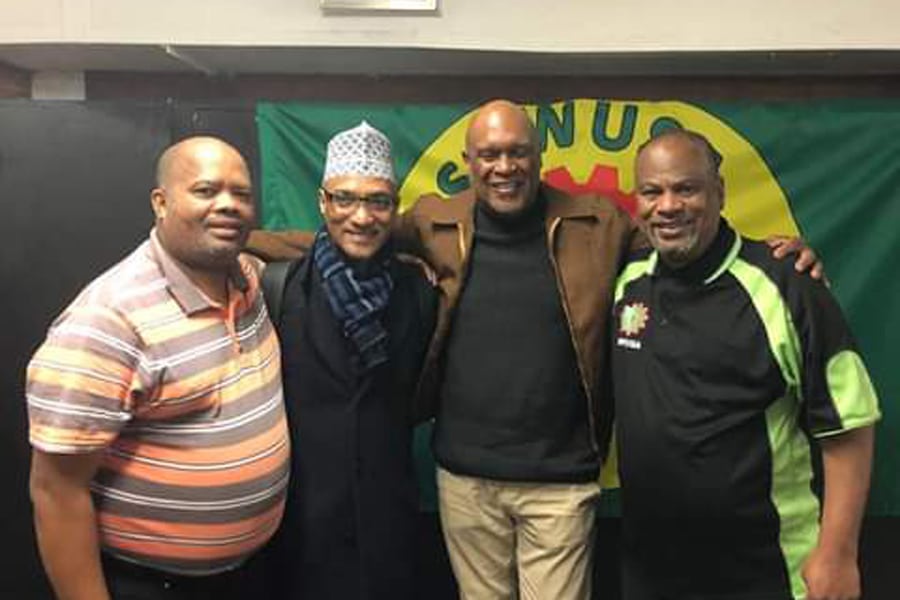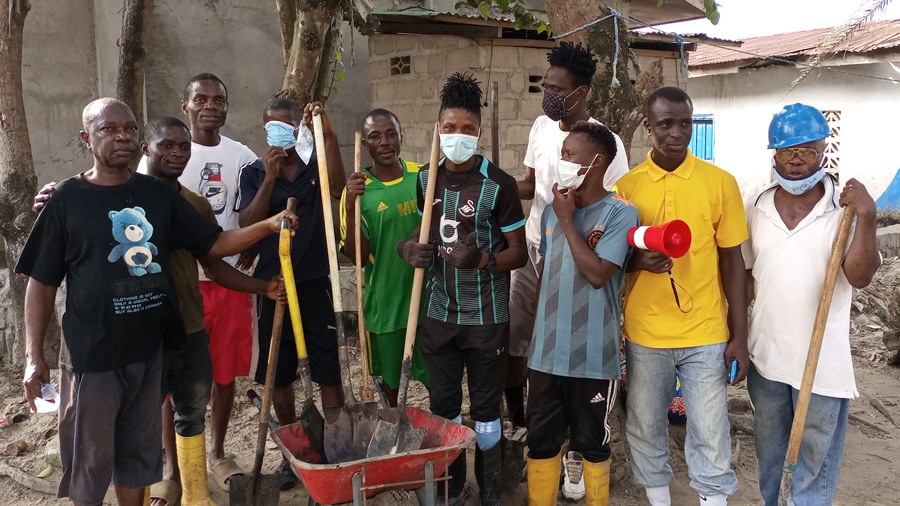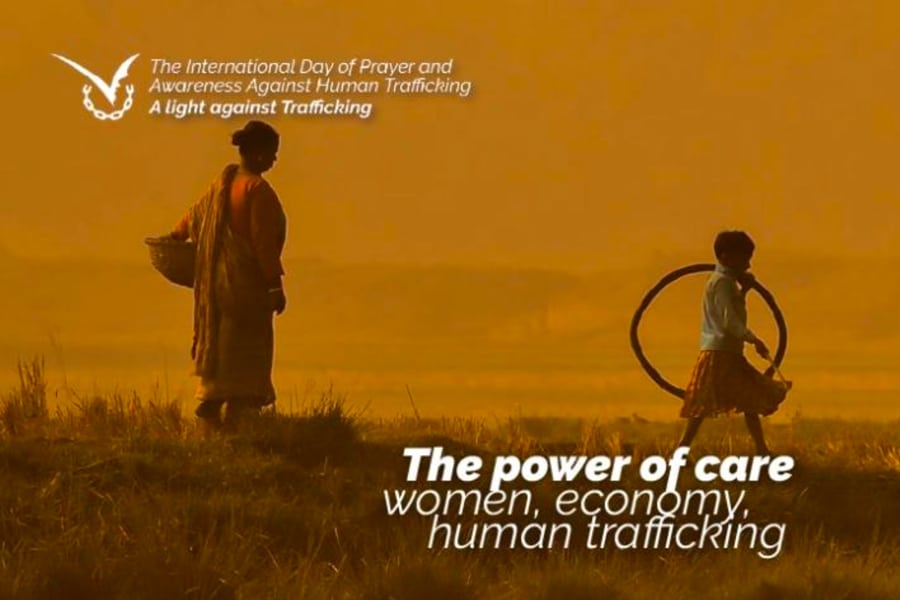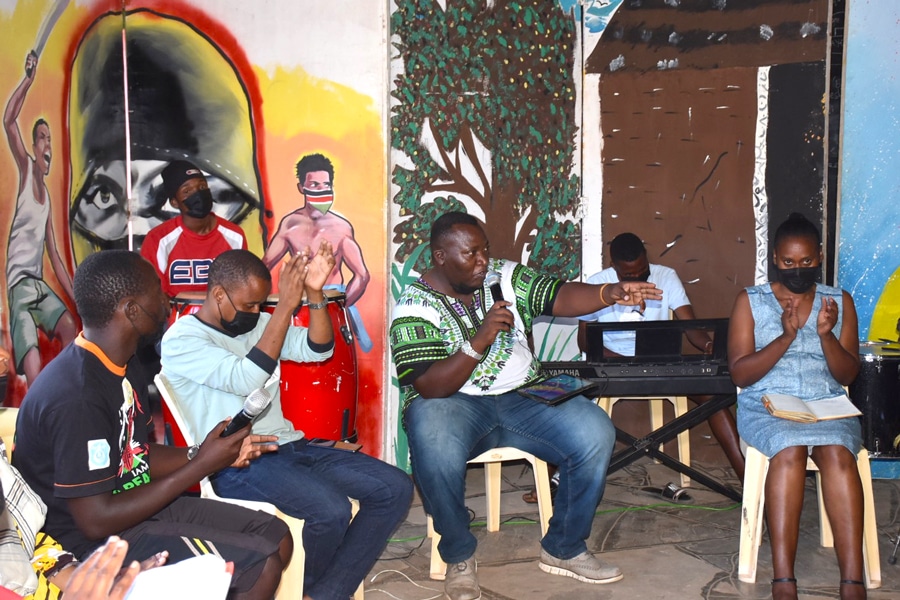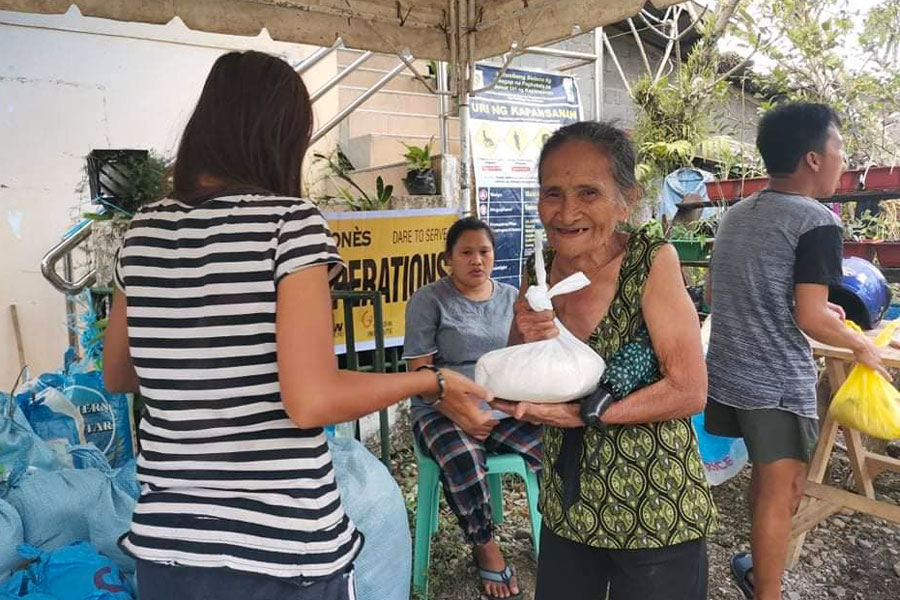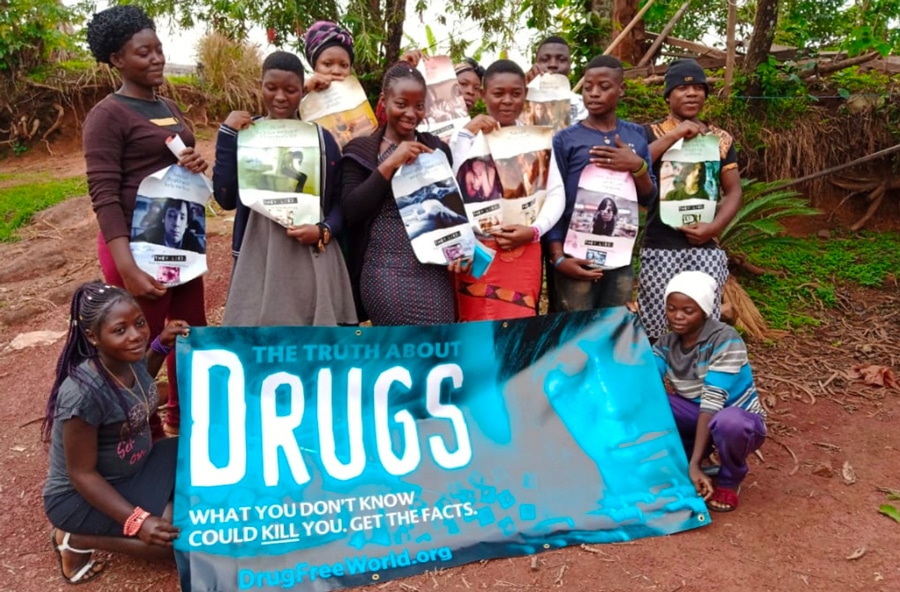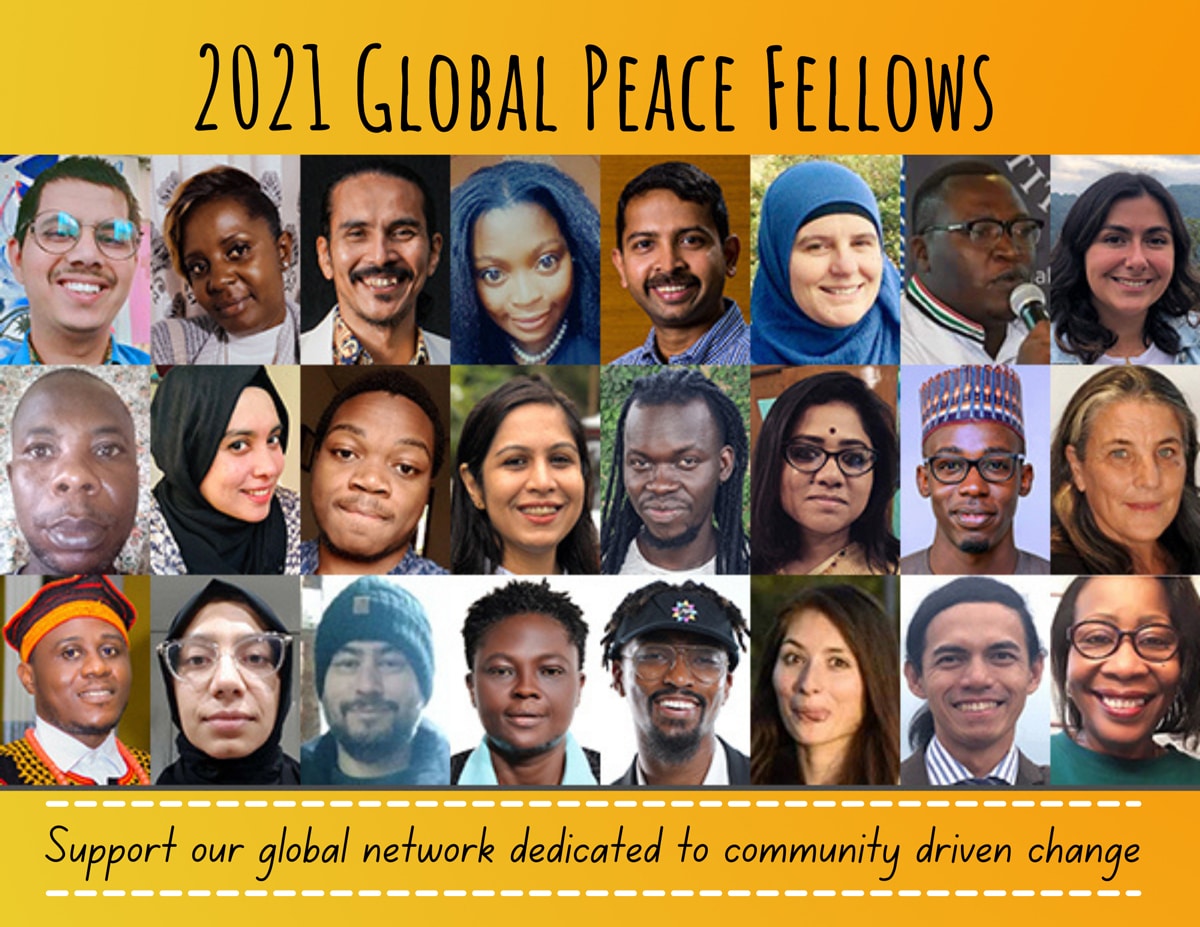Empowering Business Women in Zimbabwe Through Export Trade
By Munyaradzi Dzimunwe, 2021 Goldin Global Fellow, Zimbabwe
In my voluntary role as the national board member for COMESA Federation of Women in Business (COMFWB) Zimbabwe Chapter, I was involved in organizing a training event which took place on March 15th and 16th at Cresta Oasis, Harare. The training provided information and guidance for women entrepreneurs on the export market and trade processes. Women entrepreneurs in Zimbabwe are struggling to sell their products on international markets due to a lack of knowledge on these issues. The goods produced and processed by these women could benefit more people if they were made available internationally.

To ensure the training would be effective, we partnered with the International Trade Center’s “She Trades” platform who offered expert trainers. The sessions covered a broad range of topics, including but not limited to, product formulation, role and selection of distributors and agents, packaging, branding , and corporate governance. Furthermore, women completed a self-assessment tool of their businesses to identify areas of improvement.

Participants reported that the training had opened their eyes to the world of export trade and they were inspired to get started right away. Driven by the ambition to start in one year, they came together to start a public limited company! They had realized that running an export business would require extensive management and capital investment. So teaming up with each other was an obvious solution. They have chosen to consult with me on a regular basis to help guide them through the initial processes of the company formation. Additionally, I have also purchased shares in the company and will be serving as the company’s vice secretary.

I am so impressed by the participants for having decided to stick together and move forward as one. Their diverse backgrounds, experiences and skills will become critical as they start operations. I am excited to see the dream of a female-led export company becoming a reality! I think their willingness not only to work together but also to own an equal number of shares in the company is a recipe for success. We contributed 5 USD each to raise funds for registration of the company which is already underway. I will lead the asset mapping exercise as we prepare to start operations. The event was featured in an article by the Sunday Mail news where you can learn more our work with the African Continental Free Trade Area (ACFTA).
Chicago and Cape Town Collaboration helps Capture History
By Reverend Berry Behr, 2021 Global Fellow, South Africa
A collaboration between two DePaul University students and the Cape Town Interfaith Initiative (CTII) has yielded a rare treasure – funding for the recording of an important personal account from an interfaith stalwart as part of our efforts to capture an oral history of the interfaith movement in South Africa.

As part of the DePaul students Intro to Non-Profit Management course at DePaul University with Professor John Zeigler, these students were inspired to volunteer to support this project across the globe when they heard about CTII’s Oral History Project. The students asked how they could help, and learned that each oral history recording costs in the region of USD500. So they immediately set to work, creating a GoFundMe campaign and reaching out to their friends and family.
Within just a couple of weeks, DePaul students Jenna Dahbur and Reese Elledge had raised enough to fund a recording for the archives of the significant interfaith work that contains many lessons of harmony, understanding and collaboration between diverse religious leaders in Cape Town.
"These oral history testimonies capture the interfaith efforts to end apartheid from those leaders on the front lines. We can preserve their stories that teach us so much about ending regimes of discrimination and the healing of communities from the wounds of separation."

In a beautiful twist of destiny, the funds will be used to record the story of Imam Rashied Omar who not only lectures at Notre Dame in the US and therefore contributes to the global body of knowledge on interfaith engagement, but is also a long-time friend of the Goldin Institute and an associate of Professor Ziegler who facilitated the collaboration between the students and CTII.
CTII looks forward to further collaboration with DePaul University students and is extremely grateful for their significant contribution.
Mobilizing a Community Clean Up in Liberia
By John Kamma, Global Fellow from Liberia
Whatever social innovation we are concerned with, our impact on the lives of the people we serve or work with matters. Implementing their good ideas is important to achieving our collective goal. And, this was the case with our intervention in the Glass Factory Community in Gardnersville, Liberia.

Glass Factory was an industrial zone before the Liberian civil war began in December 1989. Internally displaced persons and returnee refugees took advantage in the absence of the industry owners and settled there in droves, and after seeking Government permission were permitted to settle in the area as squatters. Resultantly, no one owns a land deed; instead the local authority apportioned the land temporarily amongst persons seeking occupation of it. Given this situation, more people got attracted to the land (as it is cheaper than living on a titled land deed) which has led to it becoming densely populated. This has put much pressure over the limited land space, and led to inappropriate management and disposal of waste into drainages, resulting in excessive pollution and health hazards.

With the funding received from the Collective Campaign, and to address these issues of pollution and its implication on the community’s health, on February 19 2022 we had a day of community cleaning, focusing on drainages in “Glass Factory”, with strong displays of support from the community. During the clean-up exercise, we spoke to the conscience of community residents, using a megaphone, about the health benefits of keeping the drainages clean and the importance of protecting them from getting clogged up, and how essential that is for the wellbeing of all residents.

The community appreciates our organization, the Citizens Bureau for Development and Productivity in Liberia, and our supporters for working with the community in such a meaningful and impactful way, that is heart touching. Community leaders and elders were so encouraged that they formed part of the cleanup team; choosing to be with the cleanup team in their neighborhood rather than doing nothing, they joined voluntarily. We are delighted the day’s clean-up went very well.

This endeavour implemented real community driven social change by using the Asset Based Community Development (ABCD) approach, which builds on local talents and skills, and recognizes that those experiencing a social problem are those who need tobe involved in the decision-making processes when devising solutions. In Glass Factory, following such conversations the community member identified that throwing plastic bags and waste in drainages creates clogging which results in increased pollution and mosquitoes, with the likelihood of people getting sick. In relation to the above, residents of Glass Factory community held a conversation to find a way forward in handling these social challenges and to attend to the community drainages. They were successfully able to maximize tools, including wheel-barrow, shovels, ricks, booths, etc for an effective clean up exercise.
The volunteers committed to turning up with their own tools and equipment, and gathered for a team meeting in which they discussed actions to be taken, to effectively work on community drainages that will promote residents' health, sanitation and wellbeing. We, at the Citizens Bureau for Development and Productivity with the kind and good will gesture of our generous donors through the 2021 Goldin Global Fellow Collective Fund are addressing the social challenges posed with clog drainages by working with those close to the problem, supporting their aspirations to realize the community driven social change they so desire.

We are very grateful to #GATHER and the #GoldinInstitute for helping us 2021 Goldin Global Fellows to have acquired the skills and the resources to lead community driven social change. It is truly exciting to see this learning into practice.
Preventing Human Trafficking in the Philippines
By Andy Alegre, Global Fellow from the Philippines
In the Philippines, we commemorated the International Day of Prayer and Awareness Against Human Trafficking through a nationwide campaign that included a series of actions. The Philippine Interfaith Movement Against Human Trafficking (PIMAHT) together with Talitha Kum Philippines (TKP) usually promote and observe this day on February 8th in the Philippines every year. This day is also known in the Catholic faith tradition as the Feast Day or Memorial of St. Josephine Bakhita, a victim and survivor of slavery, freed later on and found faith.
"No to trafficking! We promote an economy of care, which breaks down inequalities. We invite the global network to join us in raising awareness and taking action. Please raise your vioce and share on social media using the hashtag #PrayAgainstTrafficking and #thePowerOfCare." -- Andy Alegre
To commemorate this day, we held an online prayer session together with churches and various organizations using a special vigil of prayer prepared specifically for this year’s event. Together, we prayed for freedom, healing and restoration of human trafficking victims and survivors and the protection of advocates.

We also had an opportunity to participate in a global, live-streamed youtube conversation and dialogue about Human Dignity and Human Rights. In this virtual setting, we interacted with speakers and participants on key topics as they related to the issue of Human Trafficking. This online event series had also included creative ways such as a live global marathon of prayer and reflection against human trafficking. It was a great honor to be joined by the PIMAHT secretariat members and other organizations.
Between 8:30 pm and 9:30 pm Philippine Time, we also participated in the global storm of awareness messaging via Twitter! Using the hashtag #PrayAgainstTrafficking, we spent the full hour tweeting and re-tweeting messages to raise awareness and inspire actions from churches and faith communities. Below is one example of the tweets we shared:
"On Bakhita's Day, we participate in the global online prayer marathon against trafficking. The theme: “The power of care. Women, the economy, human trafficking."
I would always participate every year in this campaign through prayer, awareness, and prevention sessions against human trafficking either in churches or in vulnerable communities. I also utilize my social media in the Twitter storm which just started two years ago.

Hopefully that next year, PIMAHT can do another campaign that is wider in scope. I will share next year's plan with Goldin Fellows so that we can participate together.
*Andy Alegre also serves as a Secretariat member of PIMAHT, a national faith-based movement formed in 2013 that is composed of representatives from the 3 largest Christian church councils together with other partner organizations united in the fight against all forms of human trafficking.
Collective Campaign Supports Grassroots Leaders in 19 Countries
By Yusuph Masanja, Co-Facilitator, Global Alumni Network
In December 2021, a new cohort of 24 grassroots leaders graduated from an 18-week community based leadership course called GATHER. Designed and implemented by the Goldin Institute, the GATHER Platform engages people who want to build on the talents of their neighbors and the assets of their communities to make real and lasting changes.
To share their wisdom and what they learned from the program, Fellows created a joint fundraising campaign to raise money that will support their continued social change projects in their countries. The campaign successfully raised 12,000 USD through online and offline donations.
“One of the key aspects of the GATHER program is to develop a global community of practice where grassroots leaders partner to promote community driven social change. Seeing such a partnership already happening, as Fellows collaborated to make a strong fundraising campaign, was so heartening and uplifting” — Yusuph Masanja, Co-facilitator, Global Alumni Network
On behalf of all Fellows, we take this opportunity to thank everyone who donated to this collective campaign. Here are some updates from the Fellows on your contributions are supporting grassroots solutions to global challenges:










Alumni are also extending a special thank you to the Goldin Institute board for matching all the donations!
To continue supporting the work of Goldin Fellows across the word, please visit our donation page to learn more or get in touch with me at yusuph@goldininstitute.org.
Fellows Lead Relief Operations for Typhoon Odette Victims
By Andy Alegre, Global Fellow from the Philippines
With support from Goldin Institute board member Nathan Shapiro, I joined forces with Goldin Institute associate Susana Anayatin to deliver critical food and supplies to 482 families who were impacted by Typhoon Odette in the Philippines.

Leveraging our local contacts and connections with the Humanitarian Order of Sierra Falcones, Inc. (SF), Eastern Samar Chapter, we were able to distribute 482 relief packages filled with food, supplies, clothes and toys to targeted households affected by Typhoon Odette (International name, Rai) in Barangay Lunas, Maasin City, in Southern Leyte.
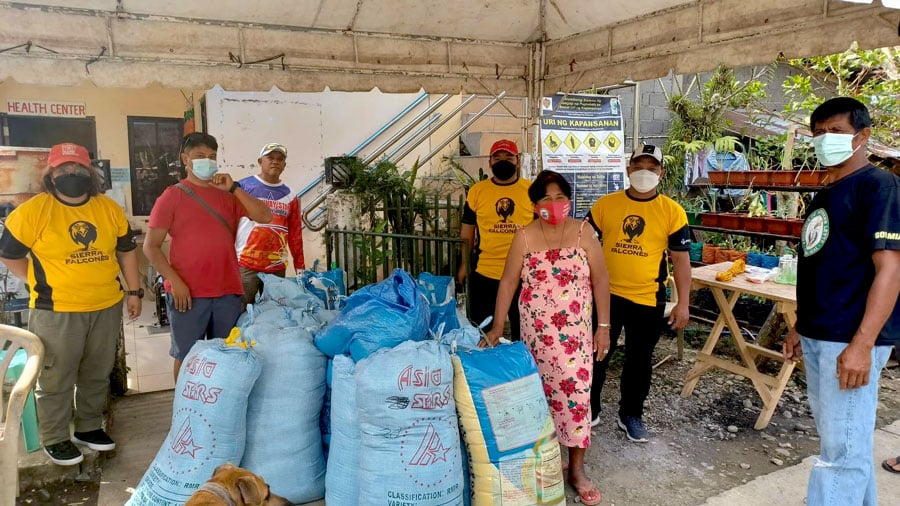
Barangay Lunas is a small community affected by Odette within the overall area of Maasin, which has a population of 87,446. The city is one of the hardest hit by the typhoon in the disaster-hit region in the Visayas with power yet to be restored and intermittent communication service.
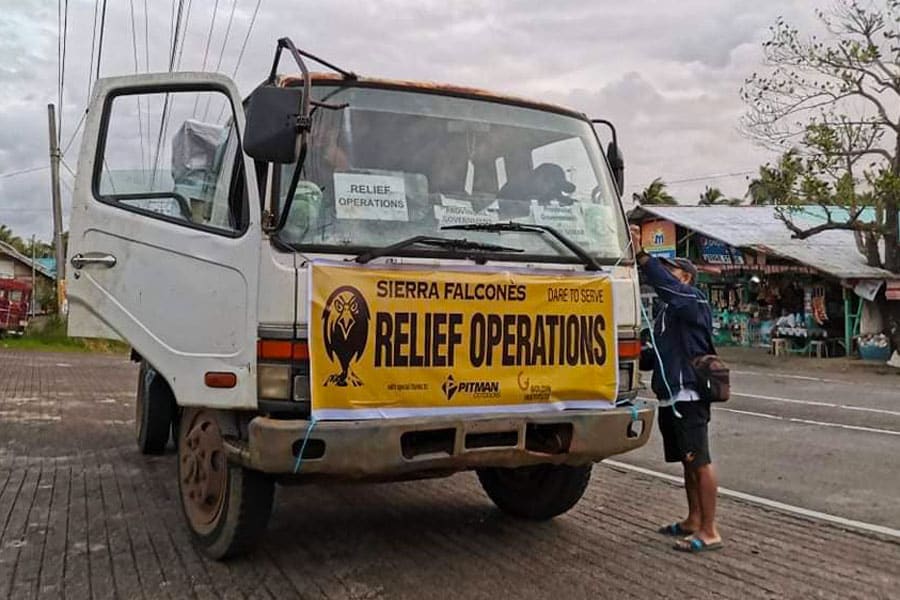
The SF members and volunteers were assisted by barangay officials in the distribution of relief supplies. The food and non-food items were prepared and repacked over a few days in Borongan City, Eastern Samar through the support and donation of various partners, organizations, individuals, and volunteers. These critical supplies were then loaded in a truck and sent to Maasin City. Coordination efforts were made by SF volunteer, Mr. Ariel Mendez of the Lunas Elementary School to the barangay council for the relief efforts.
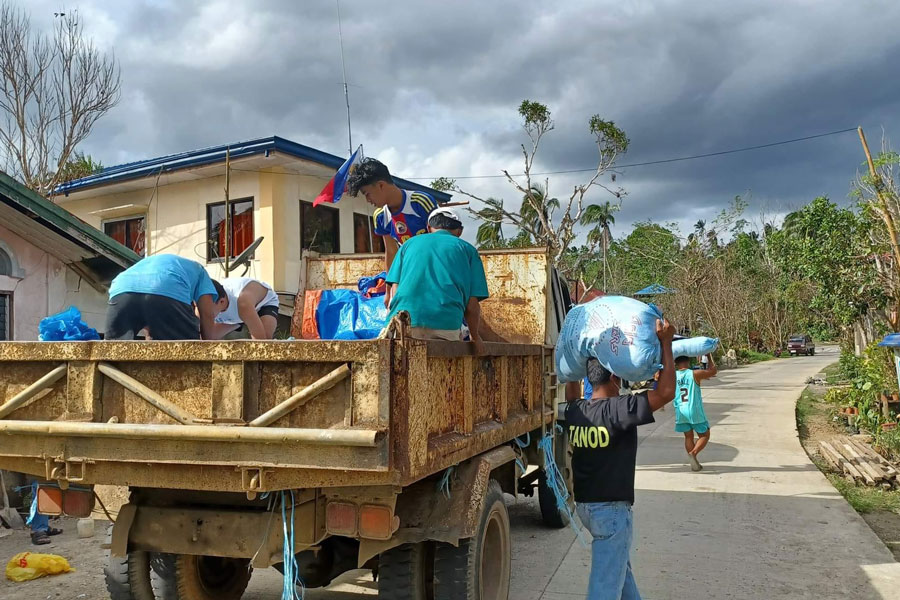
The area remains in need of support even though the Typhoon made landfall back on 16 December 2021. It brought torrential rains, violent winds, landslides, and storm surges. UN OCHA reported on December 30, that over 6.2 million people were affected across 10 regions. About 580,000 remain internally displaced with 356,000 people staying in evacuation centres while 227,000 people staying with host families or friends. The total death count is 397.
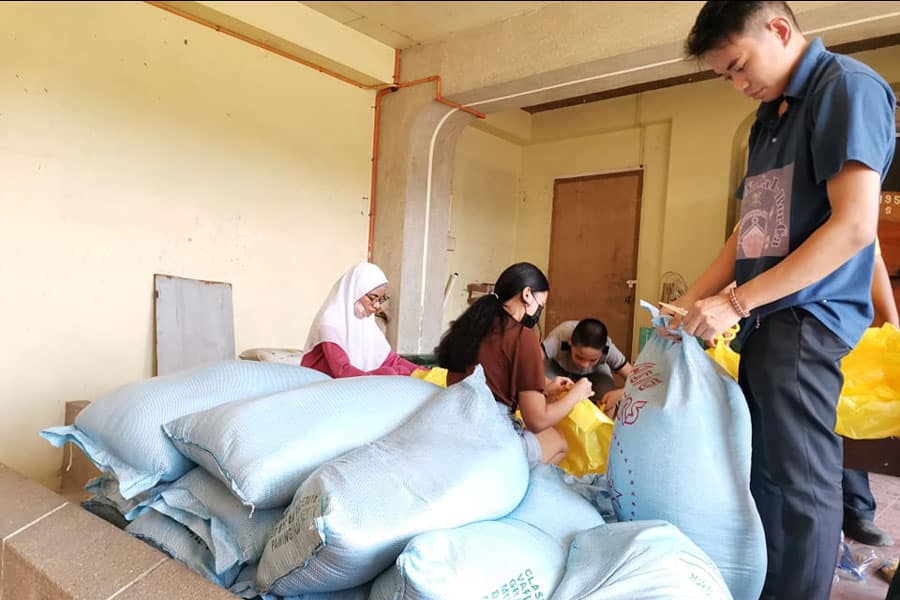
SF continues to plan and coordinate relief operations to different areas through its members and volunteers located in various chapters. Apart from the ongoing relief operations, SF strengthens its education programs through book drives, provision of education materials and radio-based instructions to remote communities at this time of pandemic.
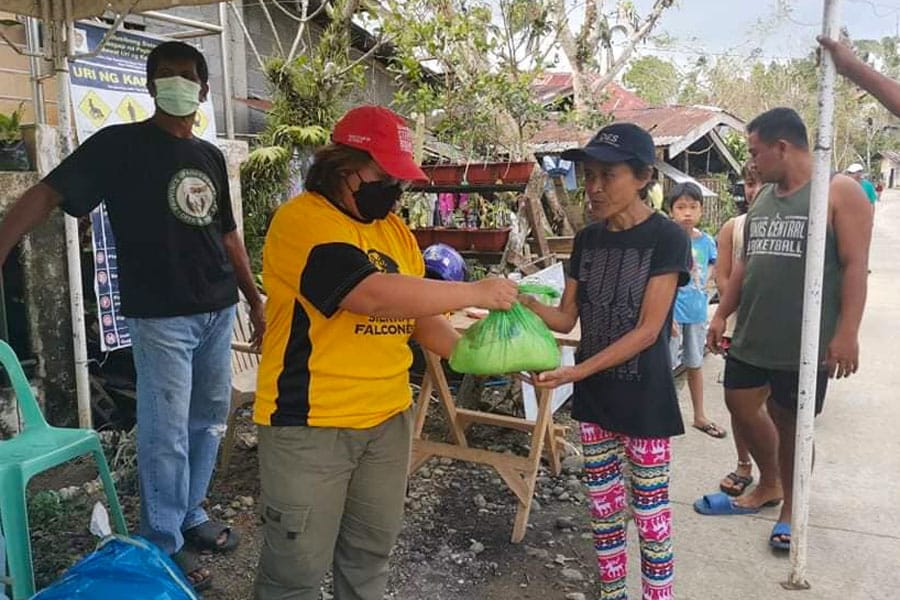
Again, thank you to the board and staff of the Goldin Institute, especially Nathan Shapiro, for standing with us in this time of crisis and rebuilding.
Global Fellows from Cameroon and the UK on a mission to help youth plan their future
By Mathias Ngong Njoya, Global Fellow from Cameroon
Personally, I have been unsuccessful in achieving new years’ resolutions! I also came to realize that many other young professionals are faced with a similar issue. So, I decided to come up with a biannual workshop that would help train and guide youth on professional development planning. We call it the Blueprint Workshop.

I teamed up with Dr. Gopal from the UK (a peer who I met during the 2021 Goldin Fellows Program) to join hands with my remote team members from Nigeria and Ghana in launching the biannual blueprint workshop. This two-day workshop took place from Jan 29 to 30th 2022 and brought together 30 youth from 15 countries in Africa and Asia. The second workshop of the year will be taking place in July 2022. The key objective for this first workshop was to invite young professionals to start the New Year with a clear set of achievable goals and provide them with goal-setting skills.
We had six speakers providing coaching on a range of topics such as the SWOT analysis (Strength, weakness, opportunities, and threats), effective goal setting, growth mindset, time management, overcoming procrastination, and development planning. We also shared templates that ga ve guidance to participants in implementing milestones which are key to achieving their goals. We have planned to pair all participants with accountability partners who will check in with them periodically. We are going to meet again with all the participants in the middle of the year to assess their progress together and offer additional support where required.
Participants shared positive feedback at the end of this two-day workshop with some requesting for the Blueprint workshop to be held quarterly so that they can track, learn and course-correct their plans in more regular periods.
"I used to think that SWOT is a tool only used by companies to devise strategies and assess markets. Through the workshop, I learned how to utilize SWOT for my own personal planning and strength assessment."
We hope to make the blueprint workshop available to more youth. It is useful to help them analyze factors outside their control while making plans. And tools such as time management can really help everyone become productive rather than simply being active. If you do not know how to prioritize, you will often not be productive.
Reflecting on the success of the workshop, I think it is crucial that I explore ways to partner with more Goldin Institute Fellows. Working with Dr. Gopal was great, and I now feel like I know him way better because we spent time planning and working together for the success of this workshop.
LEGAL Celebrates 10 Years of Advancing Human Rights in Liberia
By Jennifer Kuwa Henshaw, Global Fellow from Liberia
We recently celebrated our 10-year anniversary which marked the progress we have made in advancing human rights for LGBT individuals in Liberia. We also used the occasion to honor the contribution of our supporters and to share our hopes for the future. The anniversary celebration took place on 26th January 2022 and brought together local and international stakeholders. Reflecting on the occasion, one of our team members remarked:
“This was our chance to step back and look at the past and present activities. To learn from where we started, where we are, and where we are going.”
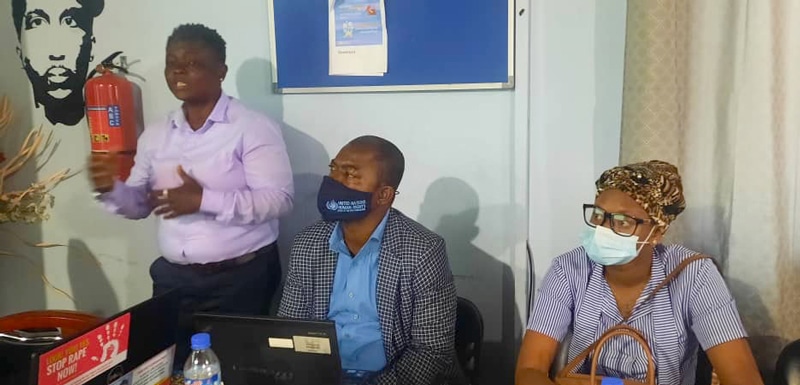
We started the Lesbian and Gay Association of Liberia (LEGAL) in 2012 to advocate for the rights of marginalized groups through awareness raising activities while providing direct support to those most-affected. For ten years, we have stood firmly as the voice of sexual minority groups in Liberia, speaking against discrimination, injustices, stigmatization, violence and abuse. We also work with stakeholders to help provide economic empowerment, health services, access to justice and education, all in addition to promoting the fundamental principles of human rights.
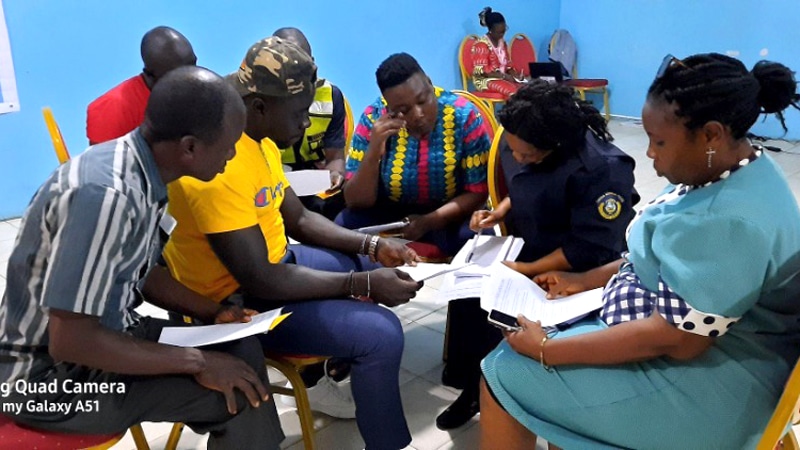
During the anniversary, we shared the following accomplishments with guests and stakeholders who joined us:
- Established the Protection Focal Persons at the Nine Police zones in Monrovia and Nimba county
- Strengthened mechanisms for Institutional capacity building
- Partnered with CSOs, Government line Ministries, NGOs, Partners, Foreign Missions, the Religious and Traditional Communities
- Strengthened relationships with Donors who continued to support our work
- Assigned Peers and Outreach Officers at the Community level who continue to document cases of abuse or violence committed against LBT women, girls, sex workers, drugs users, people living with complicated health issues and people living with disabilities
- Improved Community’s awareness on human rights advocacy and the referral path way in terms of access to health and justice
- Trained 1,183 people of whom 75% are community members. Some of the trainees are still actively involved to date
- Hate cases recorded are 93; 52 from Montserrado, Margibi 7, River Cess 21, Lofa 1, Grand Gedeh 1, Bong 1 . Cases ranging from rape, murder, GBV, SGBV, family neglect, child neglect, child trafficking, stigma and discrimination, kidnaping, sex trade, FGM, burglary and natural disaster
- Project locations have increased and we are now operating in 16 locations beyond Monrovia
The event was also an opportunity for us to thank our partners for continuing to support our mission. We issued certificates of appreciation to honor their contributions.
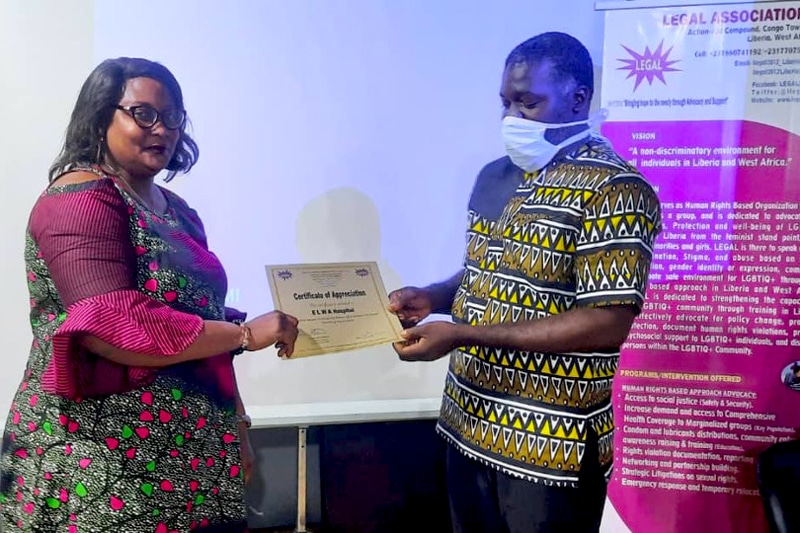
Despite having made huge progress since we started, LEGAL continues to face limitations that make our advocacy work less effective in addressing the magnitude of issues faced by marginalized groups. Some of the challenges we still face include limited funding capacity, limited partnership opportunities with the religious figures, existing stigma and limiting cultural beliefs, lack of access to basic health care services, hate related crimes against members of the LGBTIQs community, and the existing national law which discriminate LGBTIQs (the Penal Code Section 14.73,74 etc).
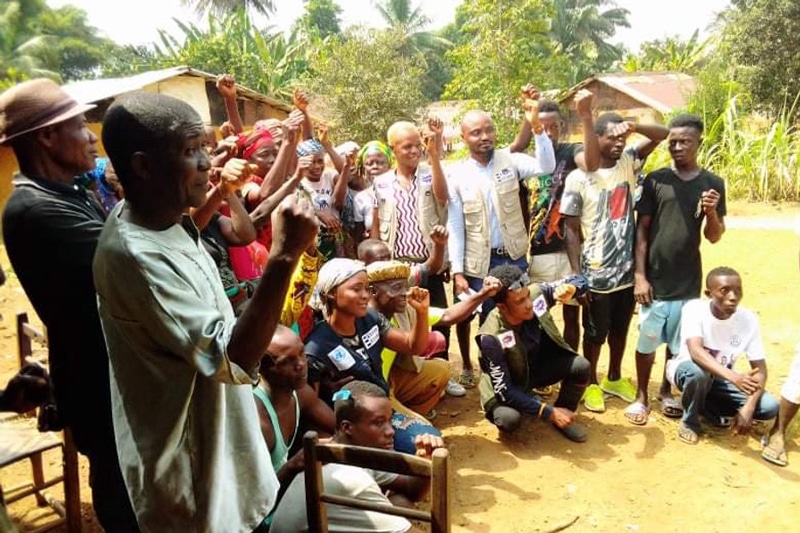
As we focus attention to the future, LEGAL plans to enhance the protection and access to basic health services, and human rights services for sexual minorities women, girls and other vulnerable groups. We also hope to increase advocacy and sexual reproductive education at community level. Our plan is to engage the following counties: Montserrado, Gbapolu, River Cess, Grand Bassa, Grand Gedeh, Mary Land, Grand Kru, Sinoe, Gbapoplu, Bomi, Cape Mount, Lofa, Nimba, Bong, and Margibi. This hope informs the core of our strategic plan 2022/2025 where we hope to continue addressing discrimination, violence, abuse, hate crimes, and stigmatization through increased community participation, awareness raising, empowermeent activities and human rights protection.
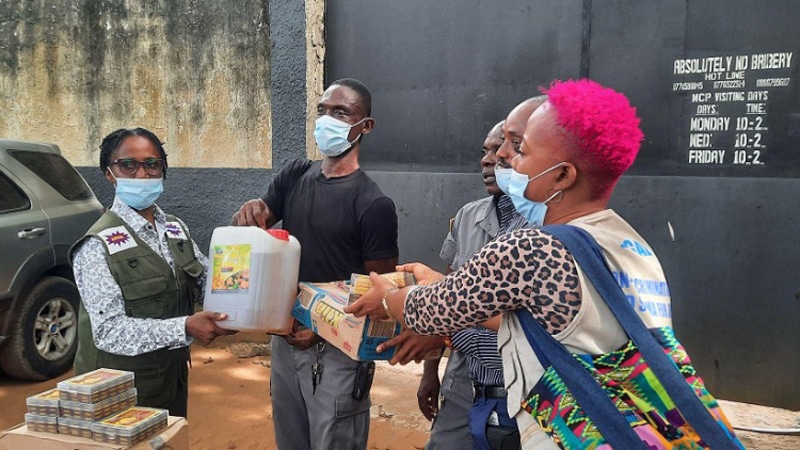
We also conducted Know Your Status Campaign on HIV and AIDS prevention, referral, treatment and stay on treatment campaign and awareness.
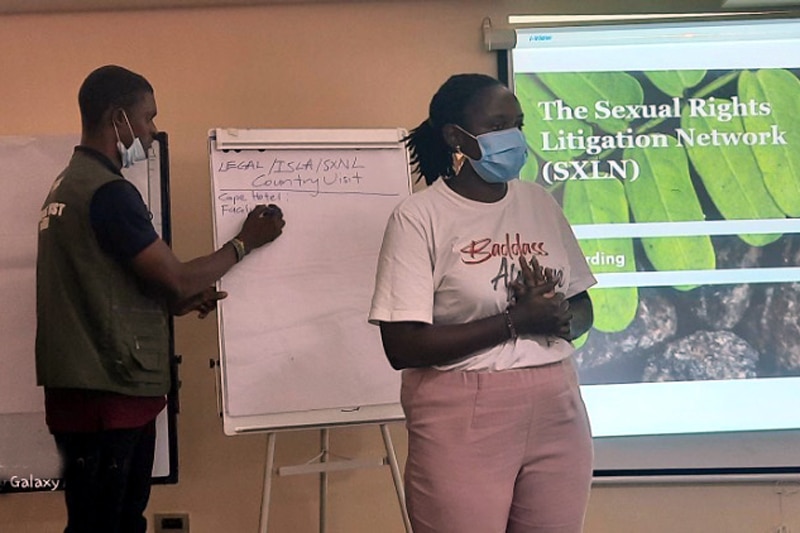
We also conducted training for Law Enforcement Officers for them to understand the rights of marginalized groups through the Human Right based approach through Solidarity Sisters (SoSNoL) who are the protection organization for the Marginalized groups in Liberia.
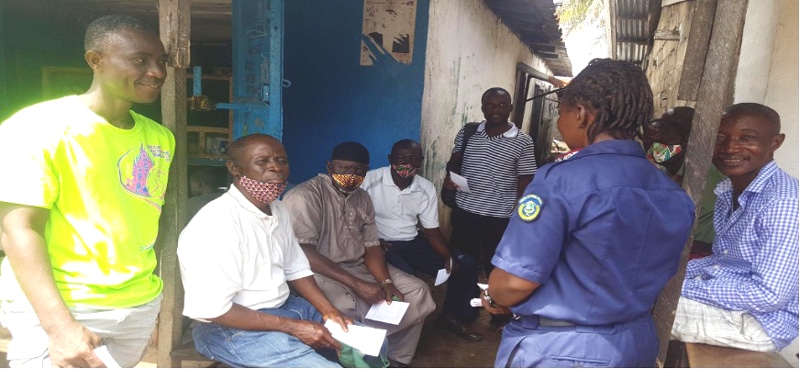
We also visited the Monrovia Prison Center and distributed Food and Non - Food Items for the inmates at the Prison Center.
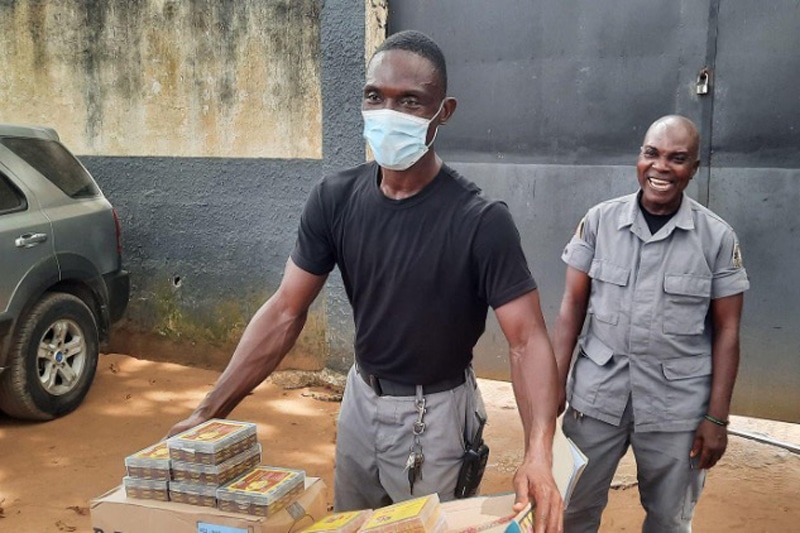
We also reach out to survivals that was brutalized by an ex Military guy that said that he has a vision for God saying that he should kill all Gay men in Liberia. We also conducted a one day meeting with lawyers to have a network that they will be representing LGBTIQ members in Liberia whenever they have cases at court level with the support from ISLA.
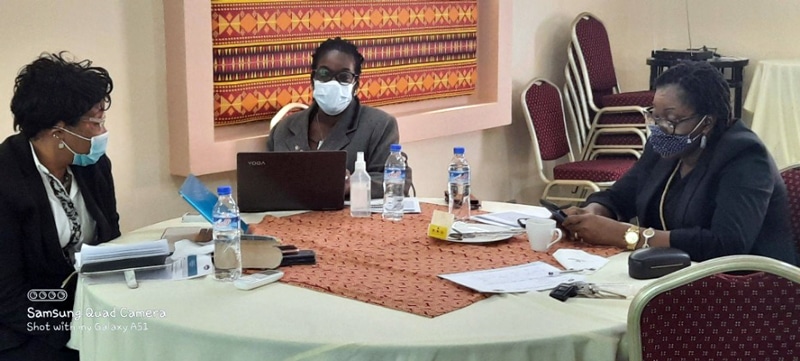
For LEGAL To be successful in implementing such a strategic plan, we are going to need support from all our stakeholders. We are going to require USD 500,000 to implement the project for the next 3 years. Additionally, we need help in developing partnerships with religious and traditional leaders, support to repeal the law that discriminates against members of the LGBTIQs community, support to conduct a mapping study of the LGBTIQs, sex workers, drugs users in 15 counties to understand their aspirations and personnel capacity building support.
We believe that by working together we can safeguard the rights of minority groups in Liberia and beyond. It starts with Me and You!
Rebuilding in Haiti: Reflections on the 12th Anniversary of the Earthquake
Today marks the 12th anniversary of the 2010 earthquake in Haiti, which caused large-scale destruction to the country’s capital, Port Au Prince. It is a date Haitians will never forget; the day they experienced one of the worst natural disasters in the nation’s history, an earthquake registering 7.0 on the Richter scale. As the country continued to mourn the legacy of this disaster, in August of last year it was once again hit by another Earthquake, this time impacting the southwestern part of the island. The Earthquake was followed by Tropical Storm Grace two days later which swept across the country, causing further damage and suffering for the victims of the earthquake.
In response, the Goldin Institute launched a crowdfunding campaign to support our grassroots partners in Haiti, Daniel Tillias and Malya Villard-Appolon, who are on the frontlines responding to the needs of those most affected by the earthquake.
Will you join us in stepping up to support grassroots leaders in Haiti rebuild their lives?
The international response to the 2010 earthquake highlighted, starkly, disaster capitalism. Of the billions of dollars raised to help rebuild the country the majority was spent on foreign intervention and personnel, including international NGOs, UN agencies, and the US military. Very little of this money ever reached local communities, local businesses, or local civil society organisations.
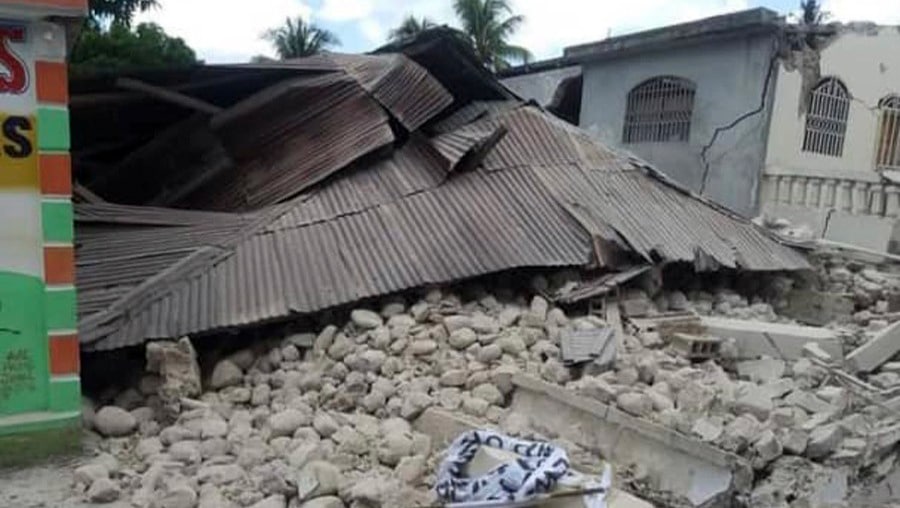
Not only did the people of Haiti have to deal with rebuilding their lives following the disaster, they also became aware of how their suffering was being used to profit international institutions and consultants. $6.4 billion which they never saw.
"We must learn from the mistakes from the response to the 2010 earthquake. We need to sustain local businesses. We must invest in Haitian communities and businesses and use their services in this disaster relief as much as possible.” – Daniel Tillias
Recognizing the impact of these past failures, many local activists and leaders are resisting this model of foreign intervention and reliance on hand-outs (or on the hope that they might materialize), and calling on international donors and funders to channel their support to grassroots actors who have the knowledge and networks to ensure funds are directed and used adequately.
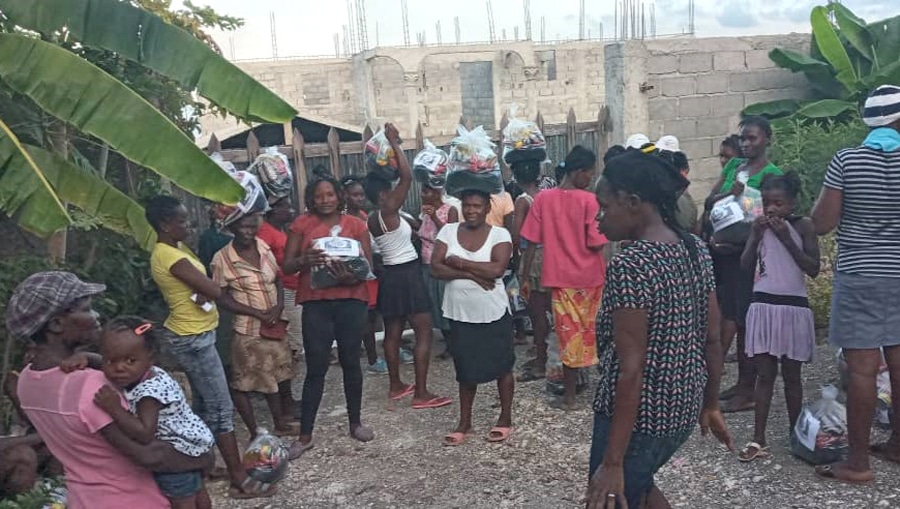
It has been five months since the 2021 earthquake hit Haiti. More than 2,200 people have died, 12,200 injured, and hundreds remain missing. More than 50,000 homes were destroyed and another 77,000 damaged. When reporting on disaster situations, death tolls often become shadowy figures and it becomes difficult to know what we can do to help; one of the most significant ways we can support is by trusting those local leaders who are on the frontlines of disaster response.
Daniel from Port au Prince, Haiti, works to improve the welfare of children and youth. In 2002 he co-founded a grass-root organization called SAKALA to promote peace and reconciliation in Haiti. With the computer Learning Center , Community Garden and sports activities, SAKALA has managed to provide a safe space in the heart of Cité Soleil (Haiti's largest underdeveloped area) where youth come together to grow, learn, and play.
Malya is a recipient of the CNN Hero Award due to her efforts against gender based violence in the displaced persons camps after the 2010 Earthquake in Haiti. She is also a co-founder of the Commission of Women Victims for Victims (KOFAVIV) working to support at risk women and girls.
As we reflect on this 12th anniversary of the great earthquake, we remain in mourning for Haitian families who lost so much, especially the women and children who were raped and abused as they were displaced to Petionville Square and other places across the country. We cannot forget. We need your support, especially for vulnerable women and girls who are still being victimized. -- Malya Villard Appolon
Together Daniel and Malya have been coordinating disaster response efforts on the ground to support children and women whose homes, businesses and families have been affected by the Earthquake and Tropical Storm Grace. They need urgent emergency relief to help women rebuild their small businesses to earn family income, to help them rebuild their homes and provide meals and school materials for their children. KOFAVIV supports 150 women survivors in Grand-Anse (Jeremie), Les Cayes, Barradères, and Port-Au Prince, who are currently under extreme conditions as their income generating activities have been ruined. Most of them are yet to recover from the previous Earthquake in 2010.
Please donate today to show your solidarity with Daniel, Malya and the people of Haiti.
Collective Campaign for Global Change
By Jassi Kaur Sandhar, Global Research Fellow
On August 9th 2021, twenty-four grassroots leaders from 19 different countries, representing diverse backgrounds, communities, languages and experiences, came together to embark on a four-month long journey through the Goldin Institute’s Global Fellows Program. Twenty-four fellows, working with over 24 communities, to impact the lives of thousands of people through community-driven social change. During the 18-week program, Fellows utilised GATHER – a tablet-based mobile learning tool, used to empower communities of practice, to identify what is already working in their communities and centre solutions around those most impacted by local and global challenges.
Now that the Program has come to an end, Fellows are GATHER-ing as a collective to raise $24,000 by the new year to support their individual and collaborative community-based projects. This fund will be equally distributed among the 24 Fellows, and so your contribution will support a portfolio of activities around the world, such as greening projects in Nigeria, supporting the rights of Rohingya refugees in Malaysia, and even providing justice education in Bangladesh.
But what moves these fellows to do what they do? Especially when what they do it not for their own gain but for the benefit of others? Their work may be different but their stories are ultimately ONE. A story of love, a love that fills our hearts with empathy, compassion, care, drive and strength. A story that can resonate with each and every person. A story of community.
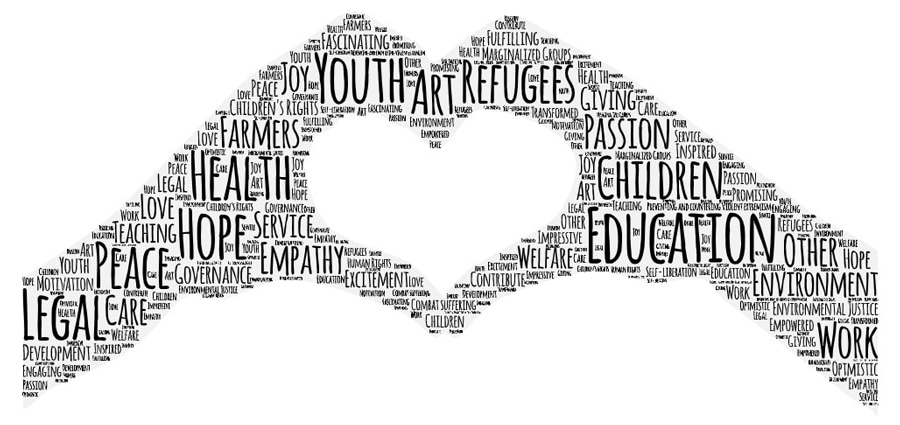
We can tell you about the work of Mathias from Cameroon, who lost his brother to the scourge of drug abuse and was propelled on a pathway to help change the fates of other youth tumbling down that path, especially those susceptible to recruitment as child soldiers in the ongoing conflict in the country. And of Chhavi from India, who has spent the last year covering the farmers' protest in India’s capital, Delhi, against unjust laws. Waking up every morning to motivate the forgotten heroes who we owe the wonderful meals on our tables to. And of Lillian from Nigeria, who chose to spend her time and energy motivating and empowering young people to change the narrative of what it means to be a leader in Africa. And of Andy from the Philippines, who recognized the harms of the human trafficking industry and chose to help create an environment of healing, transformation and safety for the survivors in his country. Or how about Arpeeta, an academic and Lawyer from Bangladesh, who is driven to create an academic environment which allows for students to better challenge socio-cultural stereotypes through justice education.
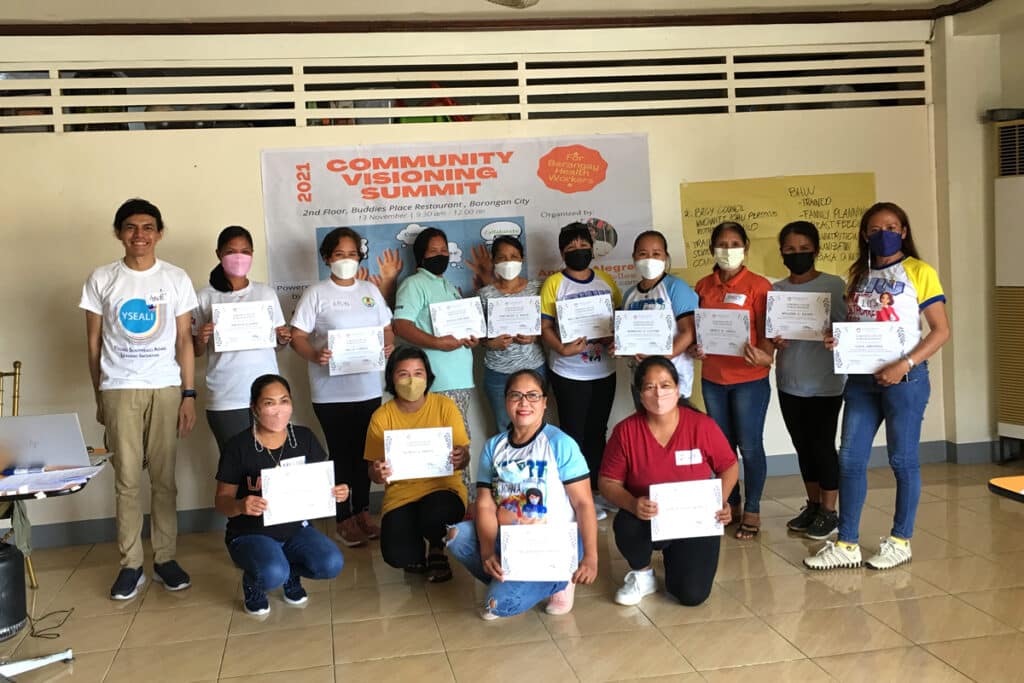
We also draw inspiration from Fatmire from Macedonia, who works to build nonviolent conflict resolution methods for peaceful coexistence between the various ethnicities in Macedonia. And also from Reverend Berry, a minister from South Africa, whose biggest inspiration is to see people happy which encourages her to find ways of bringing different faith-based groups together to facilitate interfaith dialogue. Indeed it is through dialogue and stories that we evolve. That is why Blake from Atlanta built Vngle an app to check the origin of where, when, and how stories are captured and to draw attention to underrepresented stories across the United States of America.
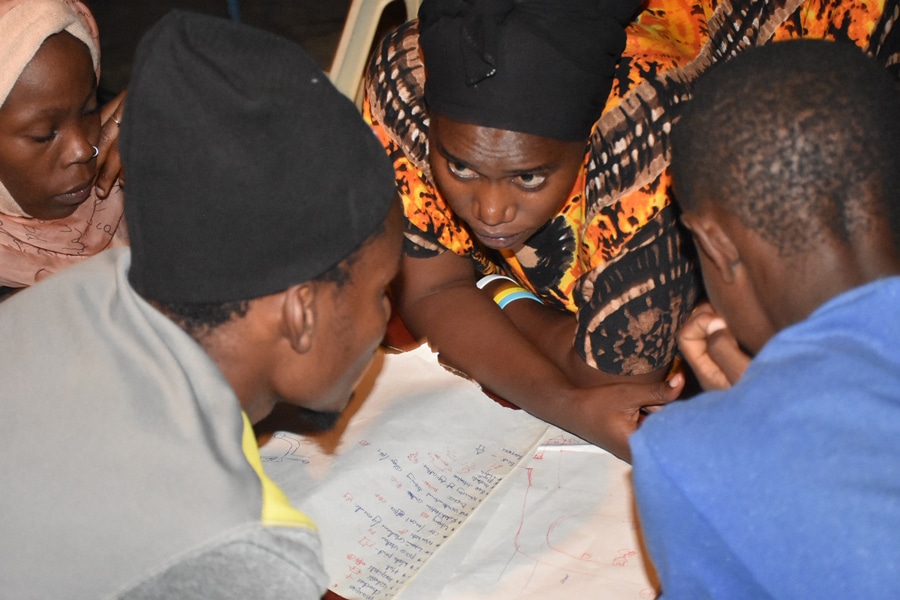
At the grassroots is where these 24 Fellows conduct their work, because top-down approaches cannot elicit the results desired. For example, Jennifer Kuwa knows first-hand the challenges facing the LGBTQI community in Liberia and therefore works to champion for their rights and facilitate access to justice for them. For John from Liberia, who promotes citizen-police relations in the country, this grassroots work involves including those most affected by social challenges, listening to their needs and incorporating their ideas – approaches which are central to the GATHER philosophy and principles which unite the 24 Fellows.
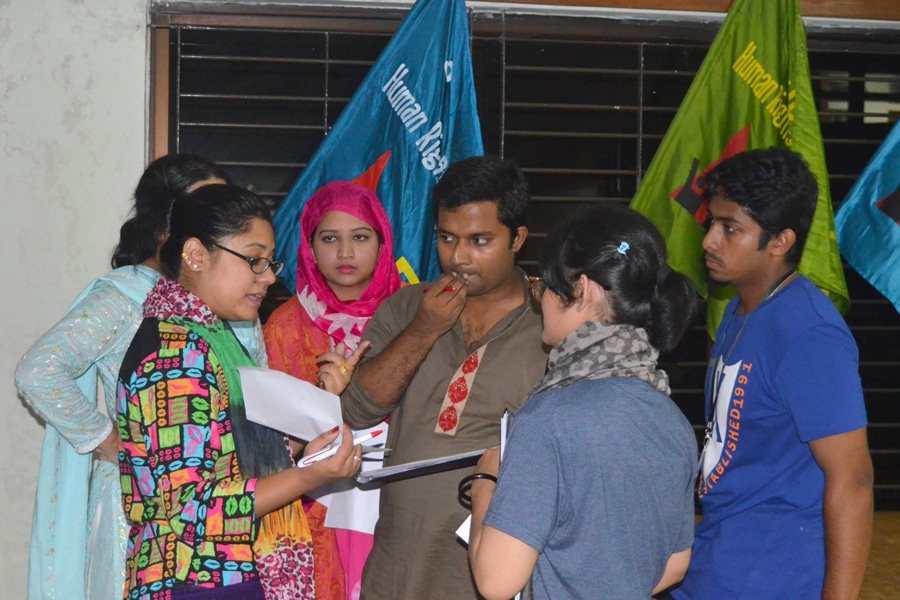
But “the core of what drives us is love, through this work is how I believe love is expressed to the world” says Mahdar, our fellow from Malaysia who is working to build spiritual awareness for Malaysian youth through talks and community projects on arts. Working with youth is central to many of our Fellows work, like Zeenat from South Africa who says “I believe that service to others is the core of what makes us human. I enjoy working with my community and especially, youth, because I feel that children are the essence of a community.” Our youngest Fellow, Luc, a 21-year old from DRC, has taken advantage of his skills in mechanics and programming to empower youth who have no access to education to train them in mechanics to create income-generating activities for them. Another one of our Fellows working closely with youth, but using accessible and engaging ways of doing so, is Lupai from South Sudan who uses radio to amplify youth voices in Juba and provides a platform to discuss social change and peacebuilding through media.
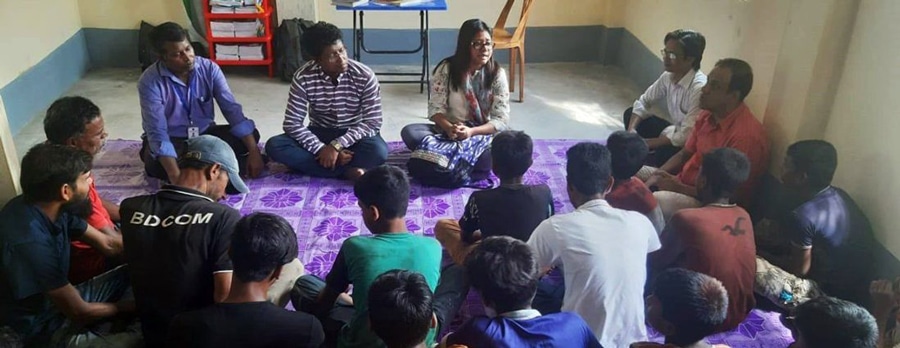
Alongside the empowerment of youth is the belief in the power of education. Sri Ram from Nepal, who is motivated by bringing joy and happiness to those around him, works with Nepalese students on non-violent communication practices and on building emotional intelligence to support greater connectedness among people. Shazmin from Malaysia values education for the most marginalised and supports refugee children, with a focus on Rohingya children, to achieve their full potential as productive individuals through education and skills training workshops in Malaysia. Our colleague Dr Gopal designs hands-on curriculum in the UK which addresses climate change and the sustainable development challenges. Munyaradzi from Zimbabwe is driven by her desire to support women become entrepreneurs and offers motivational seminars to support the economic empowerment of youth and women. For David, decentralising institutional knowledge is vital and so he promotes Spanish literature from emerging Latinx authors as a way of offering new pedagogical experiences. And for Valerie, this desire to support education projects is showcased by her work providing assistance and guidance to low income migrant families in Montreal with their children’s schooling needs.
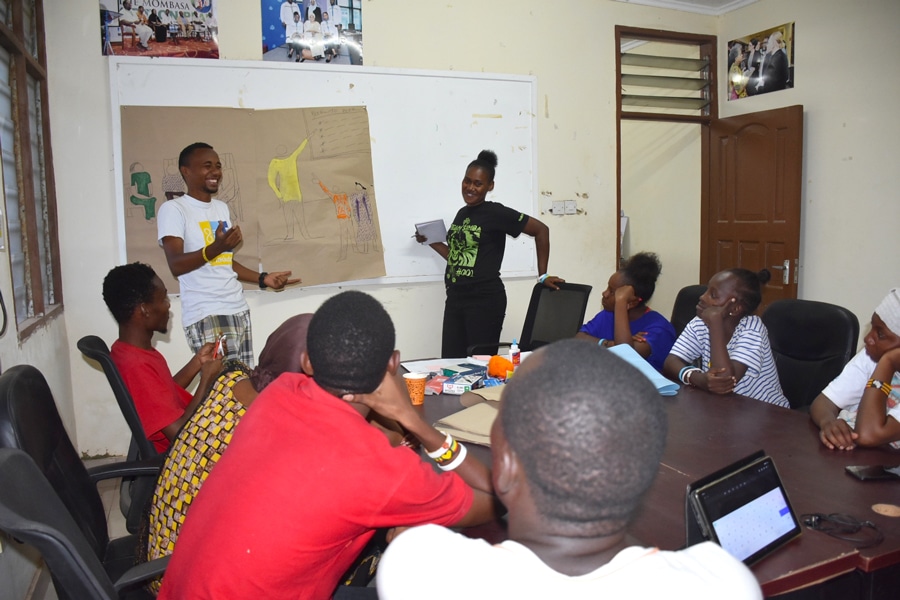
What are some of the characteristics Fellows possess? Patience, community consciousness and an inherent desire to give our best. Be it Ismail’s Tree Plantation campaigns in Nigeria, or Lilian’s socio-governance projects to entrench accountability, or Nicholas’ fight against violent extremism in Kenya, or Nonnel from Florida’s work on environmental justice and community engagement, or Luz Jennifer from Colombia’s projects on environmental, cultural and personal growth.
"Our communities held out their hands to us, we took it. Now, we ask you to take ours." – 2021 Goldin Global Fellows
Join the Global Fellows on the next step of their journey together, by contributing whatever you can to community change globally. Every dollar counts and is extremely appreciated.
